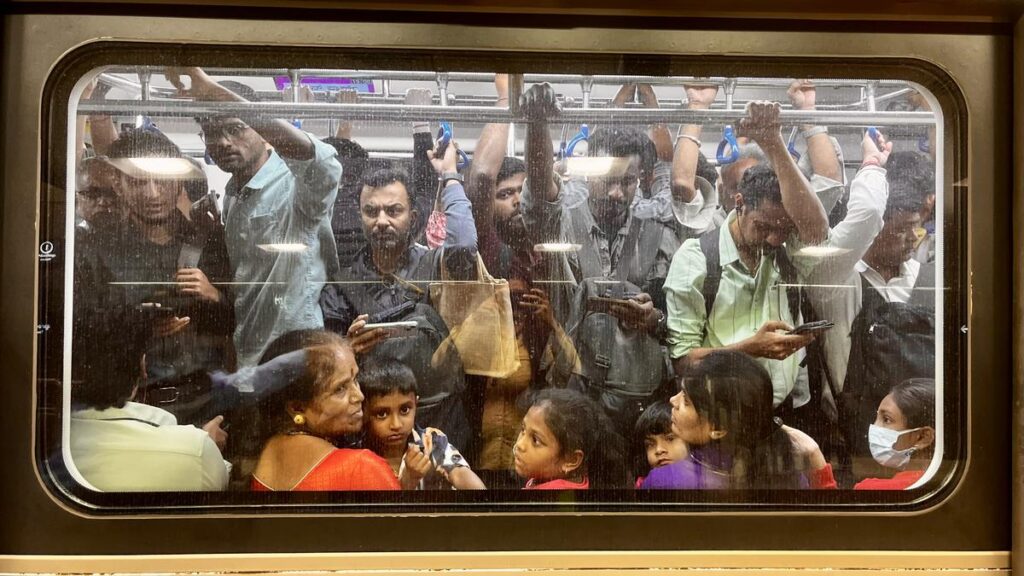The Bangalore Metro Rail Corporation Limited (BMRCL) faced severe public backlash after implementing an illogical fare hike, which led to its partial rollback within four days. The sudden fare increase, introduced on February 9, caused confusion and financial distress among commuters, prompting BMRCL to reduce the hike by 29%.
BMRCL Managing Director M. Maheshwar Rao acknowledged that technical errors had affected the fare calculation and announced a revision of the fare structure on Thursday.
Transportation experts criticised BMRCL’s flawed implementation, dismissing the technical glitch explanation as an unacceptable justification for poor decision-making. Ashish Verma, Convenor of the Sustainable Transportation Lab at the Indian Institute of Science (IISc), said, “Technical glitches cannot excuse such a shoddy implementation. BMRCL must establish accountability, identify the individuals responsible, and take corrective action.”

Mr. Verma also stressed the need for transparency in fare adjustments. He questioned why BMRCL had not made the Fare Fixation Committee (FFC) report public, stating, “Namma Metro must be transparent. This is a public transport service impacting people’s lives. They should share these critical details with the public.”
Calls for refund
Mr. Verma also suggested that BMRCL should consider refunding the extra charges collected due to the glitch. “A thorough analysis of demand elasticity and socio-economic consequences is crucial before implementing any fare adjustments in the future,” he added.
BMRCL, during its fare revision process, had created 4,623 different fare combinations, with around 459 slabs experiencing increases of up to 100%. Mr. Rao said, “We are examining ways to rationalise some of these slabs, which may result in a 15% reduction in certain fares.”
Transportation engineering expert M.N. Srihari condemned the fare hike as unscientific and poorly planned. He argued that a 71% hike in public transport fares is unreasonable. “Public transport companies should follow a standard hike of 10 to 15%, which itself is substantial. BMRCL had not revised fares for eight years. If they had implemented smaller, periodic increases every one or two years, this situation could have been avoided. Now, suddenly hiking fares by 100% is unacceptable,” he said.
Mr. Srihari emphasised that the mismanagement of fare policies and delayed decisions should not burden the public. “This policy mistake is theirs, but they are making the common man pay for it,” he added.
Rising costs, mounting debt
Meanwhile, the BMRCL officials justified the fare hike by citing rising operational costs and mounting debts. They pointed out that staff expenses, which account for 61% of operational and maintenance costs, have surged by 42% since 2017 due to inflation and wage adjustments. Similarly, energy costs, comprising 19% of total expenditure, have climbed by 34% following an increase in electricity tariffs. The sharpest rise, however, was in maintenance and administrative expenses, which escalated by 366%, now representing 20% of operational costs. These financial pressures collectively necessitated a fare revision, officials argued.
Beyond operational expenses, BMRCL is grappling with substantial loan repayment commitments, officials said. “The corporation’s repayment schedule highlights a significant increase in financial liabilities over the coming years. In 2024-25, it is slated to repay ₹647.66 crore in loans and ₹122.94 crore in interest, resulting in a total outflow of ₹770.60 crore, alongside a depreciation cost of ₹628.53 crore. By 2029-30, loan repayments are projected to surge to ₹1,457.25 crore while interest payments will reach ₹1,319.33 crore, pushing the total financial burden to ₹2,776.58 crore,” an official explained.
However, Mr. Srihari challenged this reasoning, arguing that public transport services primarily exist to serve people, not to maximize revenue.
“Is BMRCL a commercial entity or a public service organisation? They receive government support for loans and costs. Shifting this financial burden onto commuters goes against the principles of a public sector service,” he said.
The fare hike saga has exposed underlying issues in BMRCL’s policy-making and operational strategies, say commuters. Manoj Kumar, a daily commuter from JP Nagar, said, “Though the partial rollback has brought some relief, BMRCL’s approach and the way it hiked fares have had a significant impact on us. The incident serves as a stark reminder of the importance of transparency, accountability, and prudent planning in public transport services.”
Another commuter, Rahul Prasad from Jayanagar said, “This is merely an eyewash by BMRCL. The metro is a public utility, not a profit-making entity. Bengaluru is the largest contributor to Karnataka’s GDP, and the metro should be a boon to the city, not a penalty.”
Published – February 13, 2025 10:05 pm IST
Source:https://www.thehindu.com/news/cities/bangalore/metro-fare-fiasco-experts-ask-for-fare-fixation-committee-report-to-be-made-public/article69216238.ece

